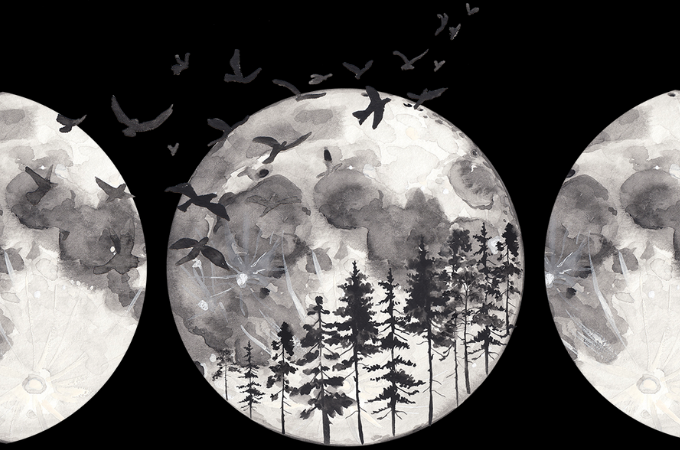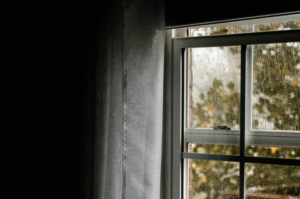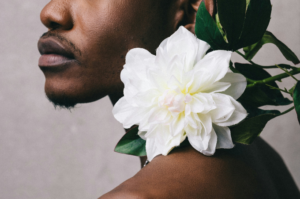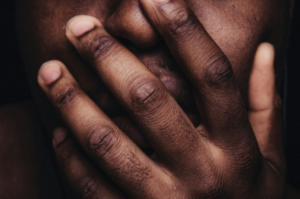
In a time long ago, not long before the tribe of Ancients lost their ability to talk to animals, a remarkable event happened—the birth of quadruplets. These special babies came into the world in a quaint village of the Ntu people, a village that lay somewhere on the enchanting continent of Alkebulan. Imagine the delight that filled the air as the four babies, two boys and two girls, entered this world. Their names were Ifo, Fify, Nasantu, and Aantu. All four babies were in perfect health, they all had good appetites, and slept soundly. As you can imagine, their parents’ hearts swelled with joy.
As time passed, the babies started to get bigger. The jolly mischievous little things enjoyed playing. As soon as the sun rose, they too were up to play some more. Outdoors, they rolled around in the sand. Their playtime lasted from morning until sunset. Everything seemed to go well for the children.
However, one morning, when the children were about three harvest seasons in age, Aantu woke up with tiny brown sores all over his body. His skin, which used to be milky white, had turned reddish suddenly. The sores seemed to hurt him and the boy cried a lot. Not even the sweet juice of a sugar cane could calm him. In response, Ifo, Fify, Nasantu and Aantu’s father sought the village medicine man, a sage known for his healing ways. With care, the medicine man examined young Aantu.
“I see, I see,” the medicine man murmured as he examined the boy.
“W-what is it that you see?” Aantu’s mother inquired with an anxious quiver in her voice.
“Notice the colour of his hair,” the medicine man prompted, his fingers gently combing through Aantu’s tresses, tinged with a soft yellow, “and his pale, milky skin?”
“Yes, but what does that mean? He is simply like any other child,” Aantu’s father interjected.
“Yes, he is a child like any other,” the medicine man began, “but this likeness carries a deeper tale – it is the likeness of those upon whom the sun is not permitted to shine.” Aantu’s father and mother exchanged a glance. Their worry was evident.
The man’s eyes appeared unusually wide, while the woman’s eyebrows knitted together in concern. “The sun can’t shine on him? What does that mean, sir?” the mother inquired, her voice tinged with apprehension.
The medicine man picked up his medicine bag and hoisted it on his shoulder. “My belief is, during his journey into your belly, the sun must have picked a fight with your little one. And I dare say, the boy most likely gave him a good whopping. Now, whenever the sun catches a glimpse of him, it seeks to avenge itself. So, for his own good, the boy is never to go out in the sun. Else, he’ll keep getting the sores you see. He should always stay indoors or keep to the shade, far from the sun,” the medicine man explained.
“For how long?” inquired the father.
“Forever,” the medicine man replied with unwavering certainty, “I’m afraid you aren’t going to get much work out of this one. Thankfully, you have the other three,” he added before departing the home.
And so it went. As the children grew, Aantu was taught to keep to the shade. He never stepped a foot into the sunlit outdoors until the sun had set. While his siblings shepherded the goats to graze, Aantu remained behind. He had to miss all the fun times they had together, especially during the hot summers. When his brother and sisters ventured to the spring to fetch water, their laughter echoed as they swam and played. Once they returned, they would recount tales of their escapades to their brother.
“Wish I could have been there,” Aantu would sigh wistfully each time, a tinge of sadness in his voice. The inability to join in their adventures tugged at his heart, casting a shadow over his longing to be out playing just like the others. He often felt lonely during the times he was left behind. To fill his hours, Aantu embraced the art of carving, fashioning small creatures from blocks of wood. He would do it in the afternoons when Ifo, Fify and Nasantu went out to do their chores. He was rather good at it and enjoyed it immensely.
During one such afternoon, while everyone was out ploughing in the fields, Aantu’s thirst led him to the cooking hut. With a calabash in hand, he approached a clay pot brimming with water. But just as he was about to fill his calabash, a flicker of motion caught his attention from the corner of his eye. Turning his head swiftly, he fixed his gaze upon the source. Amongst the array of pots, a pair of pointed, long ears peeked out, capturing his attention. Though fear initially gripped him, his innate curiosity swiftly overwhelmed him. With cautious intrigue, he set the calabash aside, suspending his task of drawing water from the pot. One by one, he carefully shifted the clay pots aside, each movement accompanied by an increasingly rapid heartbeat. The final pot lay ahead, a culmination of suspense.
With sweaty palms and hands trembling, he shifted the last pot, unveiling the mystery concealed behind it. “Just how did you get here?” the boy exclaimed in surprise as his gaze fell upon a beautiful yet frightened brown rabbit. Aantu picked up the delicate creature and cradled it in his arms. As his fingers gently brushed against the rabbit’s fur, he discovered that its little hind legs were bound together with palm leaves.
“Oh, I see. You’re probably tonight’s supper,” Aantu said. He was suddenly overcome with sorrow. He pitied the poor little rabbit. He tenderly stroked its head, planting a gentle kiss upon its soft fur. “We’ll just have to eat spinach again tonight. I’m sure dad will be mad, but that’s alright,” he whispered, his words meant for the rabbit’s ears alone. His gaze drifted outside, “How do I return you to the forest? The sun won’t set for a while,” Aantu pondered aloud, his voice tinged with a sense of lament. His eyes met the rabbit’s once more, and in that exchange, an unspoken agreement formed – this would be the exception. Just this once, he was going to allow the sun to shine on him. Donning his father’s cape, woven from the inner bark of a tree, he snuck out of the house. Having hid the rabbit under the cape, he ran into the forest of mopane trees.
With a sufficient distance between them and home, Aantu untied the rabbit’s legs and set it down on the forest floor. “Okay, you go home now,” the boy whispered, urging the rabbit to go. However, the creature remained still. The rabbit refused to move. Aantu took a few steps away, intending to return home. Yet, a glance over his shoulder, he noticed the rabbit following him. “Didn’t you hear me? Go home! You can’t return with me!” the boy yelled, a mixture of frustration and concern in his voice. But the rabbit, with its ears ever so pointy, refused to obey his command.
Aantu kicked his foot in the sand, “Such a stubborn creature,” he sighed. He gently lifted the rabbit into his arms and escorted it further into the forest. He worried about getting lost because his eyesight wasn’t very good in the daytime; he could see much better at night. Nonetheless, the boy journeyed on a little further into the forest for his new furry friend.
As he and his new furry friend ventured deeper into the forest, they were surprised to stumble upon an old woman sitting in the shade of a mopane tree. Aantu came to an immediate halt, unsure of what to do next. He briefly considered hiding, but before he could decide, the rabbit wriggled out of his grasp. It ran over to the old lady, landing in her lap. The old woman was startled at first, but her surprise quickly turned into hearty laughter. “My darling, where did you wander off to?” she exclaimed. She lifted the rabbit up to her face and showered it with kisses. Aantu couldn’t help but smile. It must be her rabbit, he concluded.
Content that the rabbit was safe and the old woman was happy, Aantu decided it was time to head back home. However, as he started to walk away, the old woman heard his footsteps and called out, “Who’s there?”
Aantu turned back to face the old lady. “It’s no one,” he replied, facing her with a friendly smile. “I found the rabbit in my mother’s cooking hut today and thought to set it free. I suspect my father caught it for our supper tonight,” the little boy explained.
The old woman extended her hand warmly. “Please come closer, No One,” she said kindly. “Let me feel your hands and give you my blessing. My eyelids have long covered my eyes shut and I can hardly see a thing, only shadows. Otherwise, I would bless you where you stand.”
Aantu hesitated at first, feeling a bit nervous about the unfamiliar woman. She says she’s blind, so she can’t harm me, he reassured himself. He slowly approached the old woman and placed his right hand gently into hers. The woman sighed with relief as their palms touched.
“Tell me, about how many harvest-seasons old are you, No One?” the old woman inquired.
“My name is actually Aantu, ma’am. I will be eight this coming harvest season,” Aantu replied.
“Every boy your age wants a new bow and arrows,” the old woman said playfully. “Should I get you one as a token of my gratitude for bringing my only companion back to me?”
Aantu’s eyes brightened at the thought of a bow and arrows, but he knew he couldn’t have them. His excitement faded, and he became sad. “I have no need for them, ma’am. Where will I get to use them? I am not allowed to leave the house during the day.”
The old woman frowned, then asked, “But why aren’t you allowed to leave the house?”
Aantu glanced down at his bare legs, which had turned slightly red from the sun. “My father and mother told me that I am one of those whom the sun is not permitted to shine upon. They said that I quarrelled with the sun when I was in my mother’s belly… or at least that is what I think they said. They explained to me that the sun hates me now and wants to harm me. They told me that if I let the sun shine on my skin, I will get painful red sores all over my body,”
The old woman was careful not to pity the boy. “I used to love playing when I was a child,” she reminisced, with a fond smile on her face. “I played and played until I couldn’t play anymore.” She paused for a moment, then continued, “Well, you should return home then, No One. There’s nothing at all I can do about your quarrel with the sun.” With a gentle pat, she let go of Aantu’s hand. She picked up her cane and wobbled off deeper into the forest. “Thanks again for rescuing my rabbit!” she called out after him. Aantu rushed back home, making sure to keep his legs covered so no one could find out that he had been in the sun.
That night, Aantu heard his father shouting, “The rabbit’s gone!” Though he felt sorry for his father, the boy also felt a sense of pride for doing something good that day.
Early the next day, the quadruplets’ mother woke them up from their sleeping hut. The children’s eyes were still puffy from sleep. “But why are we getting up so early, mama? The sun isn’t out yet,” Nasantu complained.
“There’s a woman of the tribe of Ancients who has come to visit us. I would like you to see her. They say she’s the last of her people,” the children’s mother explained excitedly. The children’s mother then summoned her husband, and the family gathered together to welcome the woman by the fireside.
Aantu’s heart skipped a beat when he saw her. He couldn’t believe it. He recognized her instantly; it was the old woman he had encountered the day before. Panic welled up within him, causing his breathing to become shallow and his heart to race. He wanted to disappear from there. Oh, how he wished the fabled big bad eagle that snatches people’s children were real. Then maybe it would pluck him up, and carry him far away. Or, maybe I can just hide behind my mother, he thought to himself. Then, he soon remembered that the old woman was blind. A wave of relief washed over him. However, Aantu’s hands started to sweat as his father approached the old woman to offer his greetings. The realisation that his parents might soon discover that he had ventured into the sun yesterday filled him with anxiety.
“It’s so nice of you to come and see us so early in the morning, ma’am,” the children’s father remarked sarcastically.
The old woman clinched her teeth, clearly unamused with the man’s tone. “That was my rabbit you tried to turn into stew, sir,” she stated firmly. The brown rabbit peered out of her bag as if to introduce itself. The children’s father was taken aback but attempted to conceal his surprise with a nervous laugh. “No One saved my poor rabbit. Where is he? I would like to see him,”
The man exchanged a puzzled glance with his wife. She shrugged her shoulders, equally baffled. “Who is it that you would like to talk to, ma’am?” the man inquired.
“No One, your son,” the old woman replied. Aantu began to tremble.
“No One? My son?” the man questioned. “I don’t have a son named No One.”
The old woman furrowed her brows and rubbed her forehead. She kept rubbing and rubbing until, suddenly, she exclaimed, “Ahaa! I think he said his name is Aantu. Yes, I am sure that is what he said.”
“Aantu?!” exclaimed the man and his wife. Aantu’s father and mother stared at him wide-eyed, clearly at a loss for words. “So, it was you?” the father asked angrily, pointing a finger at Aantu. “Why did you pretend not to know what I was talking about when I asked all of you last night? Why would you want your father to look like a fool, boy?”
“Now, now! I did not come here to bring an argument between you and your son. I came here because this rabbit is very dear to my heart. I just want to thank your son. He was kind enough to escort my rabbit into the forest. That’s where I met him. Now, can you let the boy come to me? I have something to give him,” the old woman requested.
As Aantu glanced at his parents, he could see they were simmering with anger. “I promise I only stepped in the sun that once,” he explained in a hushed voice, tears filling his eyes.
His father moved aside and gestured from Aantu to the old woman. “Well, come and receive the reward for your disobedience… No One,” the father said sarcastically. Aantu lowered his gaze and walked over to the old woman.
“Here I am, ma’am,” Aantu replied sadly, extending his right hand toward the old woman. The old woman reached out and took his hand in hers.
“Oh, cheer up, my boy. I have something for you,” she said, releasing Aantu’s hand and sitting down on the ground with her legs stretched out. “Sit next to me. I have a story to tell you,” she instructed Aantu, who quietly followed her instructions. She reached into her bag, gently took out her rabbit, and placed it in front of her. “You stay here, sweetheart,” she said to the rabbit. Then, she retrieved a mortar and pestle. The old woman proceeded to take some brown dried fruit and roasted melon seeds, tossed them into the mortar, and began to grind them. As she worked, she started to tell her story:
The story you’re about to hear is true. I had forgotten it, but after meeting you yesterday, it all came back to me. It’s about the first man of your ancestors and his wife. When the first man was moulded from the mud of the riverbank and the stem of a bulrush, he was all alone. Even though he had the company of his animals, the sun, the stars, and the moon, he was miserably bored. The King of the Ages, the invisible King who created him, then took a rib from his side and created a wife for him. He loved her dearly because she was so beautiful. He was no longer bored. He finally had a companion just like him.
Oh, but his joy was short-lived. The sun grew envious of the first man of your ancestors for he had such a beautiful wife. Although the sun had his own wife, the moon, who reflected his glory at night, he wanted the first man’s wife too.
“I will take her from you and create a second moon. Then I will have two moons to reflect my glory,” the sun threatened the first man of your ancestors. The poor man was frightened and distressed. He loved his wife deeply and didn’t want to lose her. “Bring your wife out to me that she may become my second moon,” the sun called out to the first man of your ancestors one morning.
“I do not want to become a moon,” the first woman of your ancestors cried to her husband. The first man of your ancestors then made a firm decision, “You will never leave our hut again. That way, the sun will not take you away,” he declared. And so it was, the first woman of your ancestors lived in their hut and never ventured outside.
However, she soon grew bored of staying cooped up indoors. What’s more, she dearly missed the animals. The small ones like rabbits and dwarf mongooses could visit her, but she longed for the others that couldn’t. Every now and then, she would cry out, “Why is the sun being so mean? I want to go outside,” she would tell her husband. Meanwhile, the sun kept demanding and nagging the first man of your ancestors relentlessly. “How long will you hide your wife from me? Bring her out now,” it urged. The first man of your ancestors grew weary of the sun’s constant nagging and anger towards them. So, one day, he journeyed into the forest to speak to an old friend of his, the first man of my ancestors, the first of the Ancients. He shared the entire story with him. “I wish I knew what to do, old friend,” the first man of my ancestors said.
That night, as the first man of my ancestors slept in his hut, he was awakened by a voice. “Come outside,” the voice commanded. He obeyed, stepping outside to see who had called him. It was the moon, and she appeared quite sad.
“My husband wants to replace me with your friend’s wife,” she confided.
“Yes, so I have been told,” the first of my ancestors replied with a sigh.
“I will not allow it. I will not reflect his glory with another. Quickly, while my husband is asleep, go fetch your mortar and pestle,” the moon instructed.
The first of my ancestors did as he was told. When he brought the mortar and pestle, a sparkle of fireflies descended from the moon. Some dropped dried pieces of carrots, that had now turned brown, into the mortar and some dropped in roasted melon seeds. “Grind the carrot pieces and the melon seeds until they turn into oil,” the moon directed. The first man of my ancestors ground the mixture until it became oil.
“Behind your hut is a hive of bees,” she added.
“B—bees?” the first man of my ancestors asked. He was terrified of bees because of how painful their stings could be.
“I have commanded them not to sting you. Go now and retrieve some beeswax and mix it with the oil,” the moon reassured him.The first man of my ancestors reluctantly followed the moon’s instructions. He mixed the beeswax into the oil from the dried brown fruit and the melon seeds, creating a paste.
“What should I do with this?” he asked the moon.
“Give it to your friend’s wife. Tell her to apply it all over her body tomorrow and to go outside while it is still daylight.”
The first man of my ancestors was not so sure about what the moon’s request. “Should I really do this?” he wondered aloud.
“Do as you’re told,” the moon commanded firmly.
Before daybreak, the first man of my ancestors went to find the first man of your ancestors and shared everything the moon had instructed. He handed over the paste, “Lady Moon said that your wife should apply this all over her body, and then go outside.” The first man of your ancestors gazed at the horizon, seeing the sun beginning to rise.
“The sun will take her away from me,” he cried.
“Lady Moon said we must do as we’re told,” the first man of my ancestors reminded him.
So, the first man of your ancestors entered the hut and handed the paste to his wife. “Apply this to your whole body and come outside,” he instructed her.
“But what about the sun? Won’t he take me away?” she worriedly inquired. The sulky man merely shrugged his shoulders and went outside. The first woman of your ancestors carefully applied the paste to her whole body and then emerged from the hut. She trembled with fear, while her husband remained calm, though his hands shook slightly.
Meanwhile, the sun had just risen out of the horizon, yawning as he called out to the first man of your ancestors. “Man! Man! Bring your wife out of the hut. I must make her my second moon today,” the greedy and angry sun demanded.
The first man of your ancestors and his wife exchanged confused glances. “She’s right here,” the first man of your ancestors informed the sun, pointing to his wife standing beside him.
However, the sun continued to insist that the woman should come to him. “Call her out of the hut and let her come to me!” the sun said angrily, unable to see the first woman of your ancestors.
Confused, the first woman of your ancestors said, “Can’t you see me? I am right here,” the woman said. The sun beamed with joy upon hearing her voice, though he still couldn’t see her. And he would never see her again. “Where are you, my dear? Please come to me!” the sun called out throughout the day.
When nighttime arrived, the moon called the first man and first woman of your ancestors out of their hut. “You don’t have to fear going out to your animal companions,” she assured the first woman of your ancestors. “As long as you keep applying that paste, you will remain invisible to the sun. You alone are the one upon whom the sun is not permitted to shine,” the moon explained. This brought great happiness to the first man and woman of your ancestors, and they continued to live happily thereafter.
The old woman finished telling the story. By that time, she had finished making the paste, similar to the one that was made by the first man of her ancestors. “This is for you, dear” the old woman said as she handed Aantu the bowl of paste. The boy gratefully received it into his hands. “Now you can go out and play with the others to your heart’s content. You will be invisible to the sun,” the old woman assured him.
“Really?!” the ecstatic boy exclaimed, his face beaming with joy.
The old woman chuckled, “I really mean it. Now and again, you might have to shoo away a fly or two, but there’s no longer a reason for you to keep to the shade,”
Aantu swiftly applied the paste all over his body. “We’re going to play until there’s no more play left,” the boy exclaimed, his excitement evident while his parents laughed.
And so it was, the one upon whom the sun was not permitted to shine could now go out into the sun without fear.
***
Albinism is a rare, non-communicable, hereditary condition that can be found globally, irrespective of one’s ethnicity or gender. Typically, it leads to a deficiency of melanin pigment in the hair, skin, and eyes, known as oculocutaneous albinism, making individuals more susceptible to the sun’s effects. Unfortunately, albinism remains widely misunderstood both socially and medically. People with albinism often face unfounded misconceptions and superstitious myths regarding their physical appearance, resulting in their marginalization and social exclusion.
About Albinism and Human Rights, The Office of the High Commissioner for Human Rights (OHCHR), United Nations (UN)










COMMENTS -
Reader Interactions